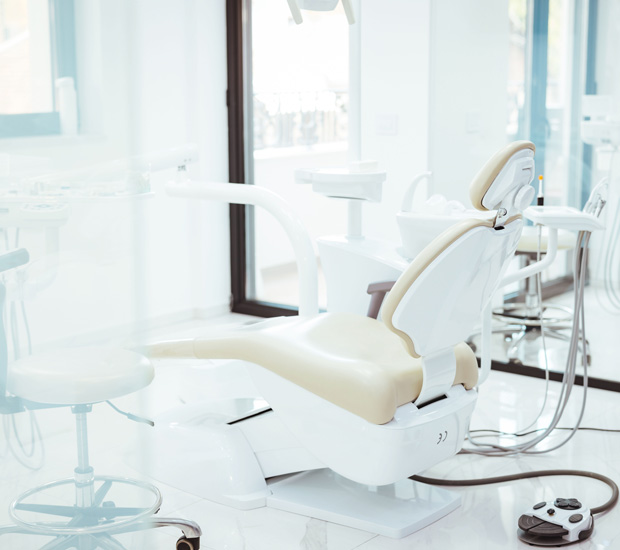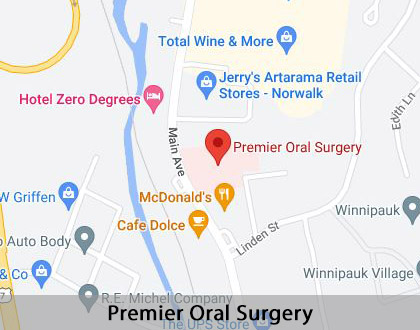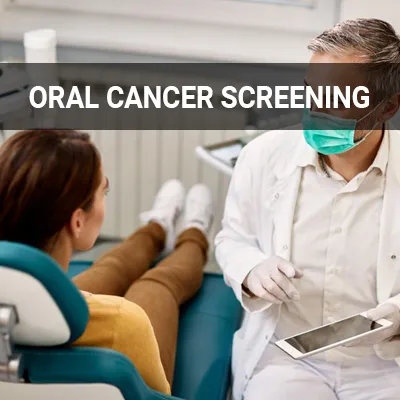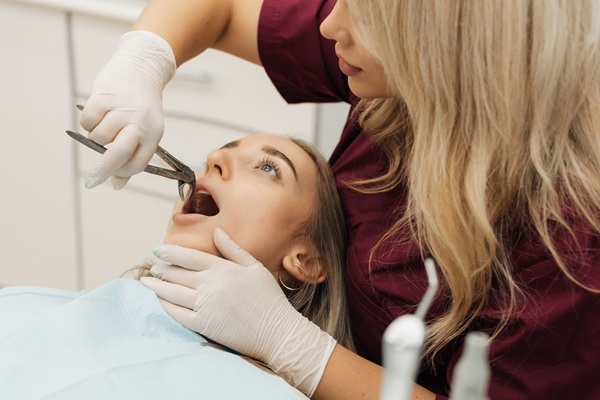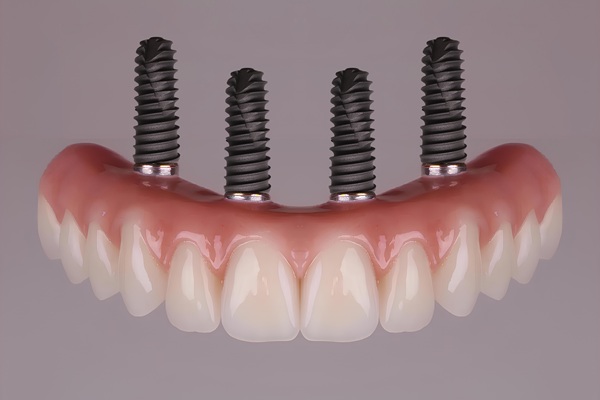Oral Pathology Norwalk, CT
Oral pathology can help patients catch early signs of pathological conditions that affect their oral and general health. Without professional treatment, these issues will only worsen over time and become more complicated to address. Visiting an oral surgeon who provides oral pathology is the key to knowing how to address these conditions.
At Premier Oral Surgery, we offer solutions for conditions within the science of oral pathology in Norwalk and the surrounding area. Our team can help treat specific oral health problems you may have in their early stages. Call us at (203) 945-0049 to make an appointment today.
Understanding Oral Pathology
As recognized by the American Dental Association, the study of oral pathology is an area of specialty dentistry that deals with identifying and managing diseases in the oral and maxillofacial regions. While "oral" refers to the mouth, "maxillofacial" refers to the face and jaws. Surgeons who are well-versed in studying oral pathology examine the causes, processes, and treatment of diseases affecting these areas.
When a mouth is healthy and normal, it is lined with smooth, coral-pink mucosa. Any deviation from this appearance could be considered a pathological oral condition, with oral cancer being the most severe manifestation. Our oral surgeon can help with early detection of pathological oral conditions to potentially enhance a patient's treatment options.
“As recognized by the American Dental Association, the study of oral pathology is an area of specialty dentistry that deals with identifying and managing diseases in the oral and maxillofacial regions.”
Signs You May Need to See an Oral Pathology Professional
Pathological oral conditions can be anything that deviates from the normal, healthy state of the mouth, however minor. These conditions can include even relatively minor ailments, such as cold sores. Usually, pathological oral conditions manifest as a legion on or within the soft and hard tissues in the mouth:
- A lump or thickening on the mucosa
- A sore that bleeds easily and fails to heal
- Chronic sore throat
- Difficulty chewing or swallowing
- Feeling like something is stuck in the throat
- Hoarseness
- Redness or whitish patches in the mouth
It is important to note that signs of oral pathological conditions can be either benign or malignant. Thus, seeing a licensed medical professional is the only way to ensure abnormalities are cause for concern. The symptoms may be found on the bone (maxilla and mandible), lymph tissue, mucosa, muscle, nerves, and salivary glands.
“It is important to note that signs of oral pathological conditions can be either benign or malignant.”
Risk Factors for Oral Cancer
There are no completely proven methods of preventing oral cancer. However, certain risk factors may put patients at a higher risk of contracting oral cancer. In particular, alcohol use may assist DNA-damaging chemicals in penetrating the lining of the oral cavity and oropharynx. In comparison, tobacco use may damage cells in the same areas.
Excessive, prolonged exposure to ultraviolet radiation from the sun may cause skin cancer as well as lip cancer. Poorly fitting dentures and other causes of chronic irritation to the mouth's lining may also increase a patient's risk for oral cancer. In addition, patients without enough fruits and vegetables in their diet may lack adequate antioxidants to fight cancer-causing cells.
Finally, male patients and those with human papillomavirus (HPV) infection are at higher risk of contracting oral cancer. As a result, patients who meet any of the above criteria should consult their healthcare provider about how frequently they should come in for oral cancer screenings.
“…certain risk factors may put patients at a higher risk of contracting oral cancer.”
Check out what others are saying about our dental services on Yelp: Oral Pathology in Norwalk, CT
Oral Cancer Self-Examinations
When it comes to oral cancer, early detection can make all the difference. Often, the symptoms of oral cancer do not manifest until the disease has already begun to spread. The more the disease progresses, the fewer treatment options a patient has. In addition to yearly dental checkups, monthly oral cancer self-examinations can be crucial to maintaining one's health. Oral cancer self-examinations are quick and easy.
Patients should remove dental products from the mouth before beginning a self-examination, which will be visual and tactile. A throat and mouth screening checks for enlarged lymph nodes in the neck and under the jaw, the inside of the cheeks and the back gums, the tongue (both sides and underneath), and the roof of the mouth.
Patients should look for any red or white patches, sores that are not healing properly after one to two weeks, sores that bleed easily or excessively, and any thickening of skin, tissue, or gums. They should also be alert for difficulty maneuvering the jaw during chewing or swallowing, hoarseness, and persistent sore throat. If any irregularities are present, contact our oral surgeon immediately.
“Patients should look for any red or white patches, sores that are not healing properly after one to two weeks, sores that bleed easily or excessively, and any thickening of skin, tissue, or gums.”
Questions Answered on This Page
Q. What are oral pathology signs and symptoms?
Q. What are the risk factors of oral cancer?
Q. How do I do an oral cancer self-examination?
Q. What are treatment options for oral cancer?
People Also Ask
Q. What can an oral cancer screening reveal?
Q. What are the signs of jaw pain?
Oral Pathology Treatment
Once an oral pathologist has discovered the presence of oral pathology conditions, they will develop a specialized treatment plan for the patient. Treatment will depend on the type of condition that the patient has. As mentioned previously, early detection and treatment will prevent the spread of the disease.
For example, oral cancer treatment will rely on the stage of cancer and the patient’s overall health and medical needs. Therefore, they may choose to do one treatment or combine different options. The most common oral cancer treatment options include:
- Surgery. The oral pathologist and patient may decide to do a surgical procedure to remove the tumor or cancer if it has spread or to reconstruct the mouth. However, surgery can lead to bleeding and infection and alter the patient’s face. In some cases, it may require the need of a tube, either short-term or long-term, to eat, drink, and take medication.
- Radiation therapy. This option is often used after a surgical procedure but can also be used on its own if the cancer is caught in its early stages. In other situations, it is possible to combine radiation therapy with chemotherapy. It increases radiation therapy’s effectiveness but also increases its side effects.
- Chemotherapy. It is possible to give chemotherapy drugs alone, together with other chemotherapy drugs, or in combination with other cancer treatments. The side effects depend on which specific drugs the patient receives. Common side effects of chemotherapy include nausea, vomiting, and hair loss.
- Drug therapy. Drug therapy treats oral cancer by altering aspects of cancer cells that can cause them to grow. This therapy can be used alone or with chemotherapy or radiation therapy. Side effects can include skin rash, headache, and infections.
- Immunotherapy. This oral cancer treatment uses the patient’s own immune system to fight cancer. Immunotherapy is typically reserved for those with severe cases of oral cancer and where other treatments have failed.
“Once an oral pathologist has discovered the presence of oral pathology conditions, they will develop a specialized treatment plan for the patient.”
Frequently Asked Questions
Q. How often should I have oral cancer screenings?
A. You should see a dentist for a routine checkup at least once a year. However, there is no agreed-upon standard on how frequently you must undergo oral cancer screenings. In addition, some people may require more frequent examinations than others based on their risk factors.
Q. Are canker sores a pathological oral condition?
A. Canker sores, also known as aphthous ulcers, are common and minor pathological oral ulcers. They tend to heal within a week or two. They are neither infectious nor viral. Topical steroid mouth rinses and ointments should be adequate treatment.
Q. Why should I see a surgeon for an oral pathology screening?
A. You may wonder why you should see a surgeon for an oral pathology screening instead of a dentist. Oral and maxillofacial surgeons have additional training that makes them specialists in oral pathology, meaning they have comparatively more knowledge in diagnosing and treating any issues in the region.
Q. How are pathological oral conditions diagnosed?
A. It depends on what condition your surgeon wants to test you for. In general, however, you may need to undergo X-rays, other imaging techniques, and various other tests to get the most accurate diagnosis.
Q. Are oral pathology examinations painful?
A. Most oral pathology examinations are not painful, especially concerning the conditions they may help catch. However, patients with dental anxiety may be pleased to learn that we offer various sedative and anesthetic options for various procedures. We are committed to making your experience as comfortable as possible.
Start Feeling Better – Visit Us Today
By visiting us as soon as possible, our team can help get you the professional treatment you need. Instead of waiting around and allowing the symptoms to get worse, we can provide you with treatment options.
Call Our Office Today
Matters of oral pathology are pressing and potentially life-threatening. Our oral surgeon and team at Premier Oral Surgery may be able to help. Call us today at (203) 945-0049 to schedule an appointment and learn more.
Helpful Related Links
- American Dental Association (ADA). Glossary of Dental Clinical Terms. 2023
- American Academy of Cosmetic Dentistry® (AACD). Home Page. 2023
- American Academy of Maxillofacial Prosthetics. American Academy of Maxillofacial Prosthetics. 2023
- American Association of Oral and Maxillofacial Surgeons. American Association of Oral and Maxillofacial Surgeons. 2023
- American College of Oral and Maxillofacial Surgery. American College of Oral and Maxillofacial Surgery. 2023
- National Cancer Institute (NCI). National Cancer Institute (NCI). 2023
- WebMD. WebMD’s Oral Care Guide. 2023
About our business and website security
- Premier Oral Surgery was established in 2017.
- We accept the following payment methods: American Express, Cash, Discover, MasterCard, and Visa
- We serve patients from the following counties: Fairfield County
- We serve patients from the following cities: Norwalk, Cranbury, Spring Hill, New Canaan, Westport, West Norwalk, East Norwalk, South Norwalk, Wilton, Westport, Weston, New Canaan, Tokeneke, Rowayton, Darien, and Noroton
- Norton Safe Web. View Details
- Trend Micro Site Safety Center. View Details
Back to top of Oral Pathology
